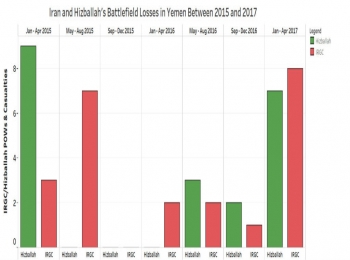- Yemen Humanitarian Periodic Monitoring Review, January - April 2017
- Yemenis and Qāt: A Game of Cat and Mouse
- The Queen of Sheba: The Virgin Mother and King Solomon’s Lover
- UNICEF airlifts lifesaving supplies to Yemen to combat cholera
- She May Be The Most Unstoppable Scientist In The World
- Yemeni Militias Loot 63 Ships Loaded With GCC Aid
- Notes to Yemen’s Government on Statement of Security Council
- Yemeni vice president condemns Houthi attacks on KSRelief shipments
- Mauritania Suspends ‘Suspicious’ Qatari Projects
- Passports announce extension of visitor's identity for the Yemeni brothers
Over the past 20 years, the qāt trade has become the most successful trade in Aden. Every day, thousands of women and men flock to the streets and into the qāt markets to buy the intoxicating herb.
When the people of Aden discuss the effect of qāt, they rarely mention how the plant influenced their lives, ensuring that the practice remains behind closed doors. They do not wish to acknowledge how their relationships with their wives, children, and acquaintances have changed. They address only the economic and environmental aspects surrounding them, and ignore the damage that has afflicted the households of those who are addicted to the plant. In an attempt to justify their continued abuse, they cling to excuses regarding the unavailability of appropriate economic conditions, overlooking the social problems related to qāt consumption that have given birth to violence.
Since the unification of the two Yemeni states in 1990, qāt consumption has become increasingly prevalent in southern Yemen. This followed a period during which it was banned from entering the southern provinces, except for an average of two days a week. At the time, qāt users represented a relatively small minority compared to the current numbers. Moreover, it was considered a foreign practice, before it became an integral part of the social culture in the south of the country.
The Death of a Qāt Seller
In a popular qāt market in the Sheikh Osman district of Aden, Salah Mohammed al-Radfani, one of the city's many qāt vendors, sits among his wares. He arrives daily from the mountainous area of Radfan, about 90 kilometers away from Aden, to sell qāt to its patrons.

Al-Radfani narrates that his brother was recently killed by one of his clients, in an altercation over the price of the qāt. The dispute erupted over a price increase of 200 Yemeni riyals. "My brother was working with me in the qāt trade and we were earning a lot of money for our family, until an armed individual, like the many other armed customers, came to our trade location and asked us to reduce the price of one strain of qāt so he could buy it. Words gave way to a fist-fight, and it ended with my brother being killed."
The prevalence of qāt plays a key role in the deterioration of the economic, social, and environmental conditions in southern Yemen. It is behind most family disputes, in a society where 90% of males chew qāt for three or four hours a day, according to a World Health Organization report.
Mona al-Deba'i, a housewife, says her family's social status was relatively good before the qāt plant found its way into their household. “After my husband became addicted to qāt, most of his monthly income has been spent on buying the plant, and he barely provides us with the basic necessities, or even pays the bills for the house, causing us to live like the poor, despite his good income,” she says.

"My husband's addiction turned our lives into a living hell. Our children have not had a taste of fruit in their home for a long time. They have not bought new clothes or holiday wares because their father neglects them."
Al-Deba'i says her husband enters his room, closes the door, and chews qāt for eight or nine consecutive hours, before he falls asleep. He spends most of his days without uttering a single word to his children.
Qāt addicts are characterized by a number of qualities, including violence and excessive agitation when they stop chewing, or when they do not have enough cash to buy the plant on a daily basis. This prompts some to resort to stealing, or in some cases to extort their wives or parents under threat of weapons or other violent means to achieve their goal.
Share TweetAn estimated 90% of men in Yemen chew qat, for three or four hours a day on average.
Share TweetYemeni qat: a harmless shrub, or a destroyer of families?
The Culprit Behind Domestic Violence
According to a study published by the Yemeni Mental Health Association, 97% of cases of domestic violence were initiated by males. The association moreover identified the excessive use of qāt as one of the main causes of domestic violence.
Buthaina Yafi'i, a teacher at a secondary school for boys in the Brega district in Aden, is the victim of domestic violence resulting from her husband's addiction. She spends her entire income on providing her children’s basic needs, after she left her home with her three children to escape her abusive husband, and returned to her family home several months ago.
"My husband's addiction to qāt reached an intolerable level, especially after he lost his job at a private company," she says. "He did not even try to look for another job because of his long hours of sleep and depression due to the lack of qāt. He used most of his savings to buy qāt, so he sold his car and some of the furniture in the house, which I had bought from my income. He also tried to steal my valuables and savings to buy the plant.”

Yafi’i tried to prevent him from consuming the plant, and used every type of advice and guidance she could summon, asking his family and close friends to mediate between them to find solutions, but to no avail. "It got to the point that he would beat me in front of our children to give him my salary, which I used to purchase our daily needs."
Gradual Reduction Prior to a Blanket Ban
In a surprise decision, which took effect last May, Aden authorities decided to ban the entry of qāt into the city except for two days each week, restoring the abundance of qāt to what it was during the Socialist Party’s rule.
The Yemeni government in Aden says the increase in qāt-related crimes prompted the ban on its trade in the city five days a week, allowing entry only on Thursdays and Fridays. "The government aims to gradually reduce qāt consumption before it is finally banned in the country," says Nabil al-Mashoushi, commander of the security forces in Aden, who heads the forces responsible for inspecting goods before entering other provinces.

In the past few months, the vegetable markets in Aden have witnessed a marked improvement in the number of heads of households who began to spend their daily qāt provisions on fruits and vegetables, and the various necessities that their families had been deprived of for a long time.
"My children and I are happy because their father gives me money every day ever since the qāt ban was enforced. I go with them to buy the fruits they love, after they had been deprived of it for a long time," Amna Batouil tells Raseef22, as she buys fruit with her children. “I am a housewife, and I don’t have a university degree I can rely on to get a job. We rely on my husband’s salary as our only source of income, from which he dedicates a monthly budget for qāt.”









